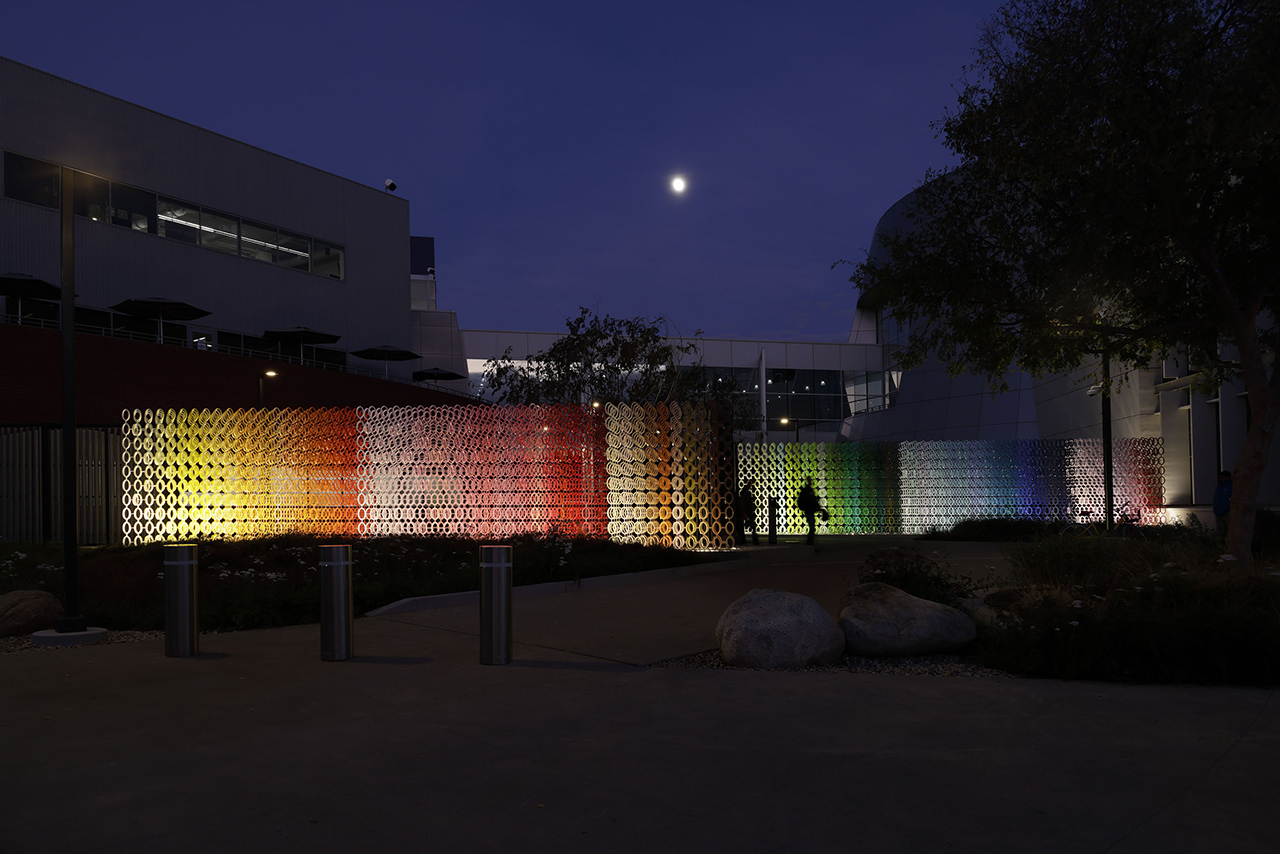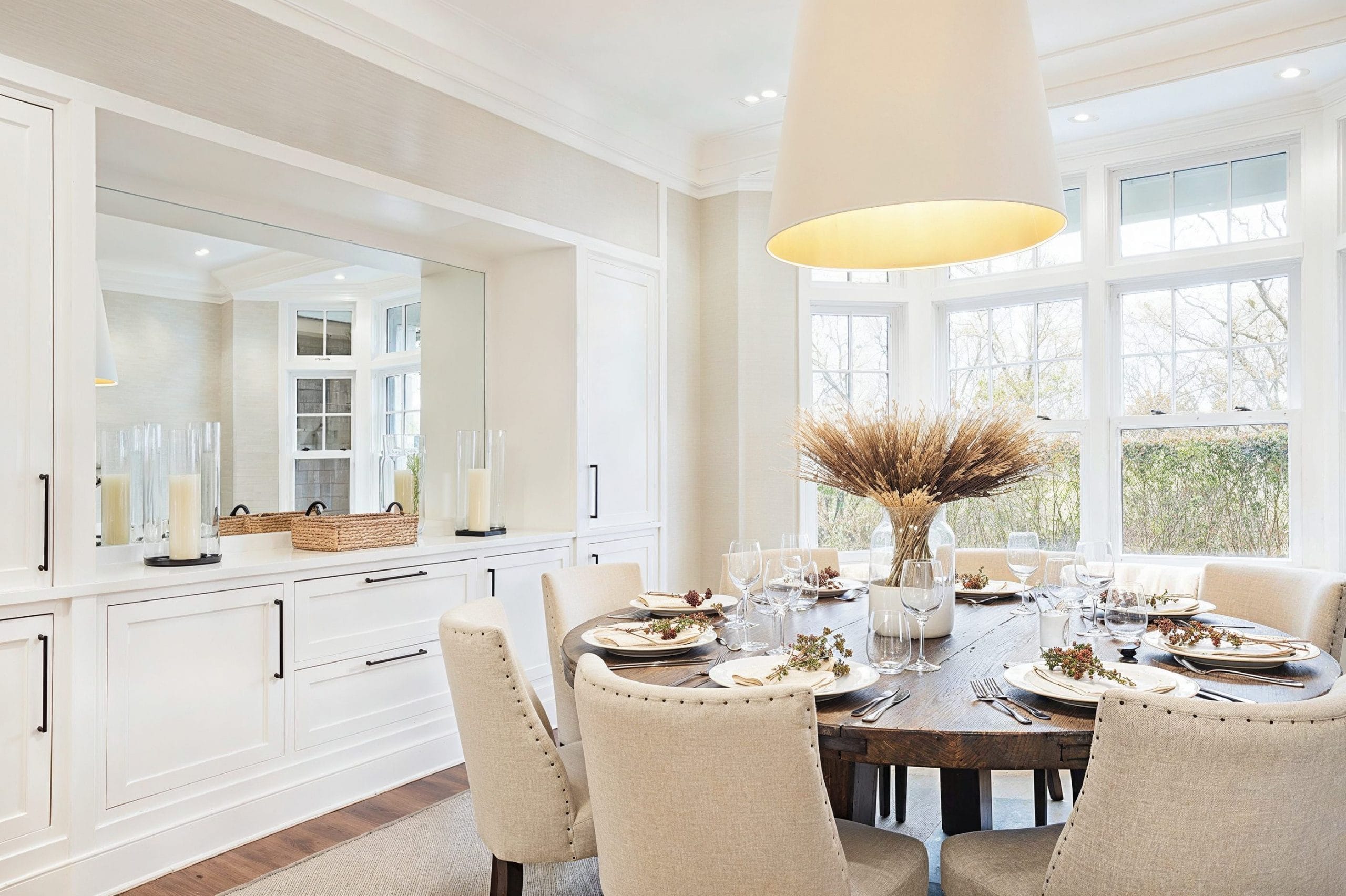Canadian studio Ménard Dworkind has unveiled a retro-themed coffee bar featuring Rubik’s Cube mirrors and a floor tiled to look like checkerboard shoes.
Situated in downtown Montreal, Caffettiera Caffé Bar features a monolithic black terrazzo bar that welcomes people into the open space.
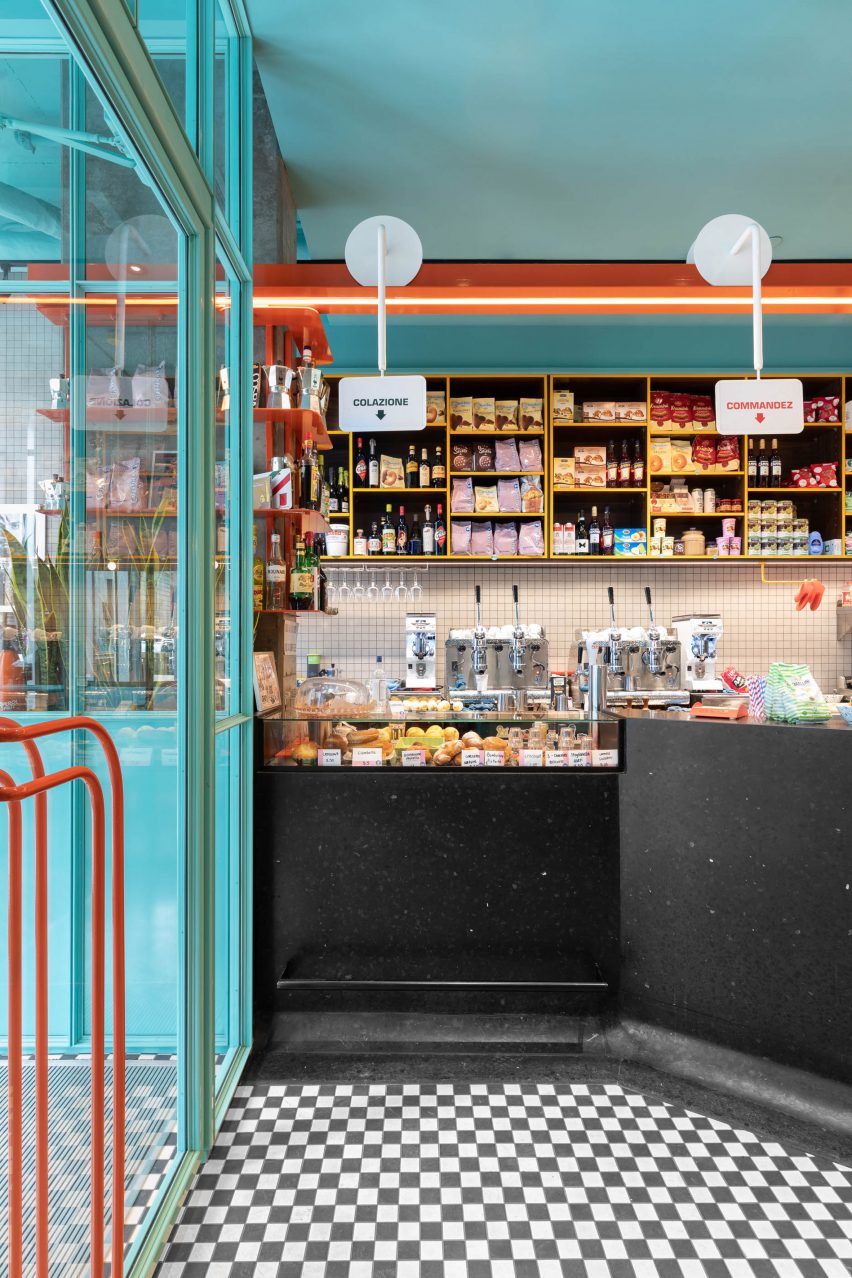
Combining refreshments and a retail display, this main bar emphasises Caffettiera Caffé Bar’s social focus and curves down to meet the checkerboard mosaic floor.
“The checkered floor was inspired by Vans checkered shoes,” studio co-founder David Dworkind told Dezeen. “As Guillaume Ménard and I both grew up in the 90s we tapped into our own personal nostalgia.”
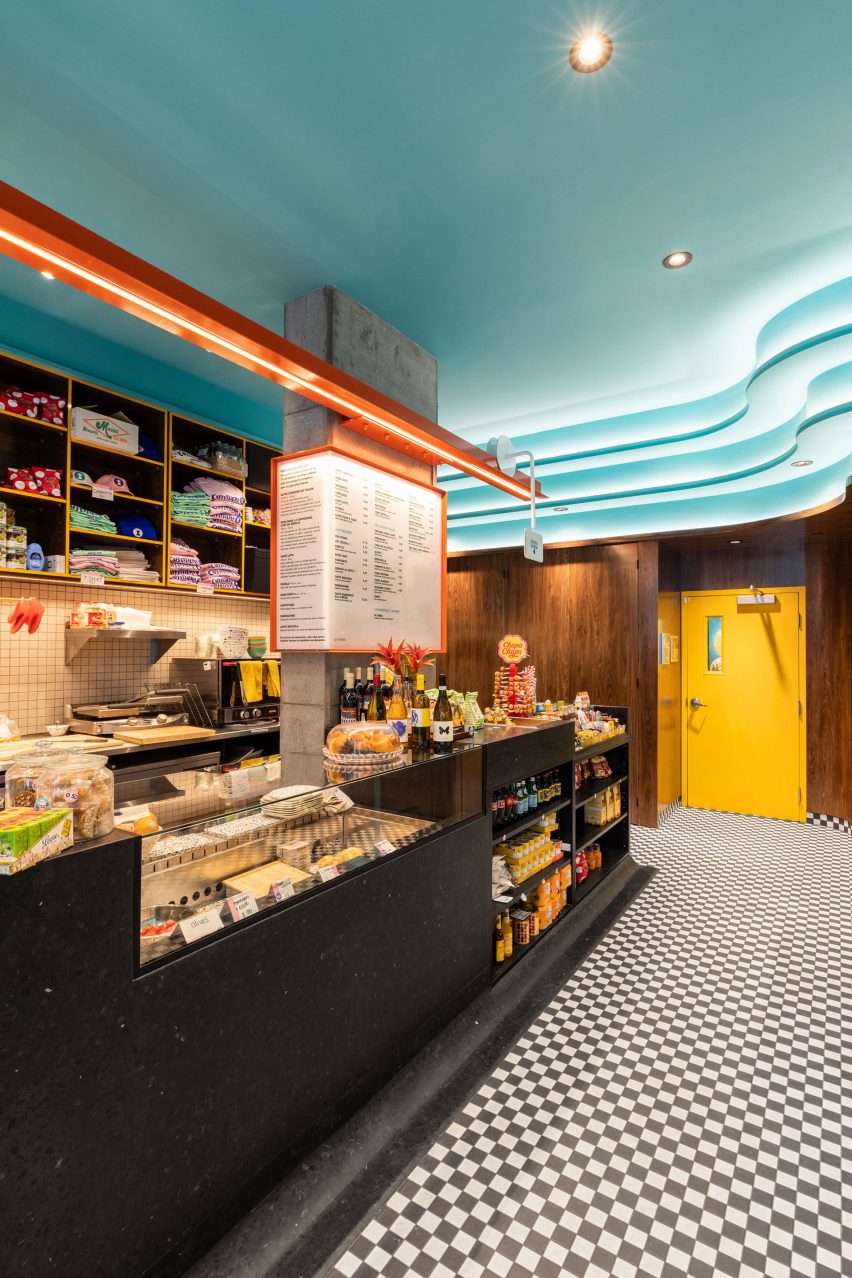
The cafe’s owner wanted to bring Italian coffee culture for Caffettiera Caffé Bar, where customers are encouraged to linger over a cup.
“We placed a footrest at the coffee bar so clients can stand there and have a chat with the barista,” said Dworkind.
“We included a long, standing bar in the middle of the space to increase the density of people with spots in the cafe, which helps to encourage socialising”.
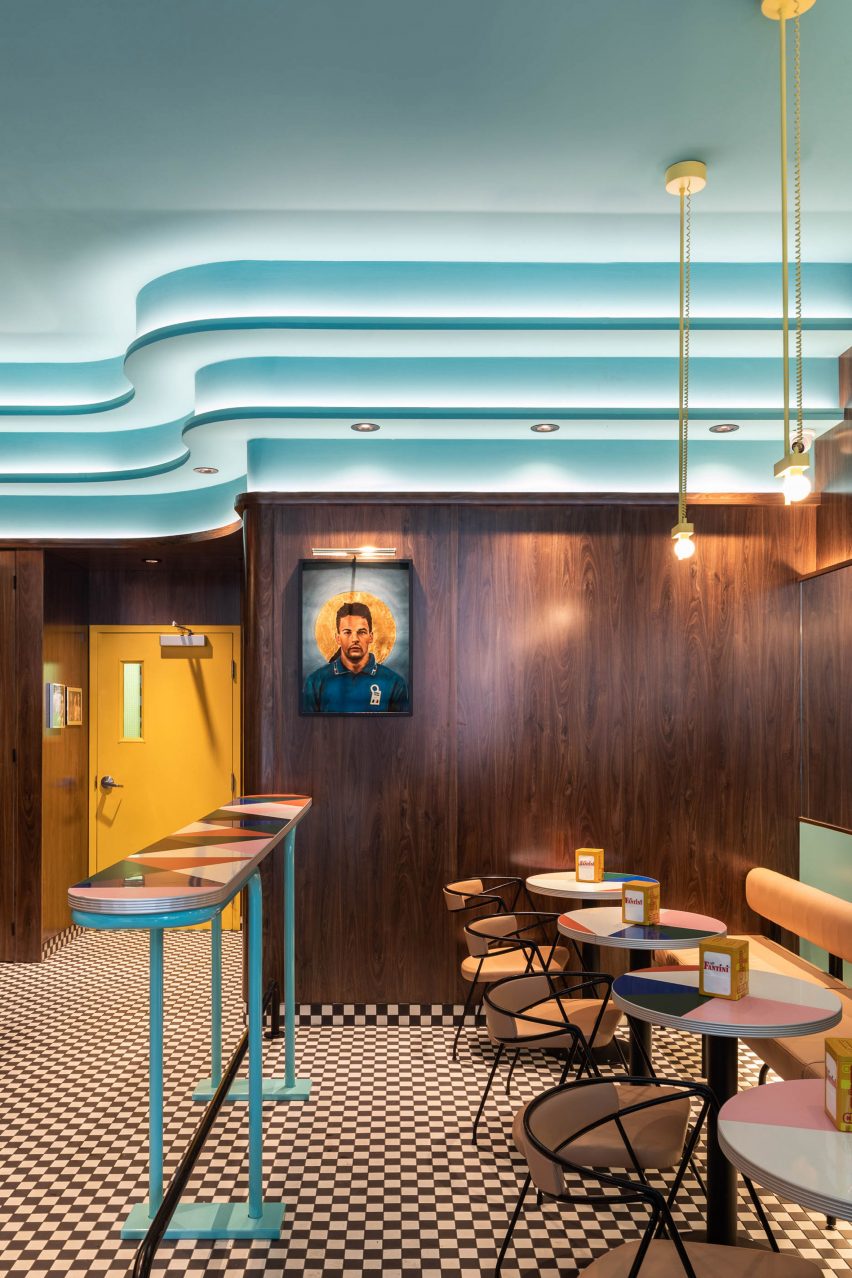
Curved mirrors are mounted onto faux-wood plastic laminate panels, a retro material that aims to connect customers through a sense of nostalgia.
“The 90s theme was the driving force for the colour palette”, explained Dworkind. “The use of plastic laminate fake wood panels on the wall and bright colours were all popular in the 90s. The Rubik’s Cubes to frame the mirrors in the bathrooms is another example of something from our personal memories of the 90s”.
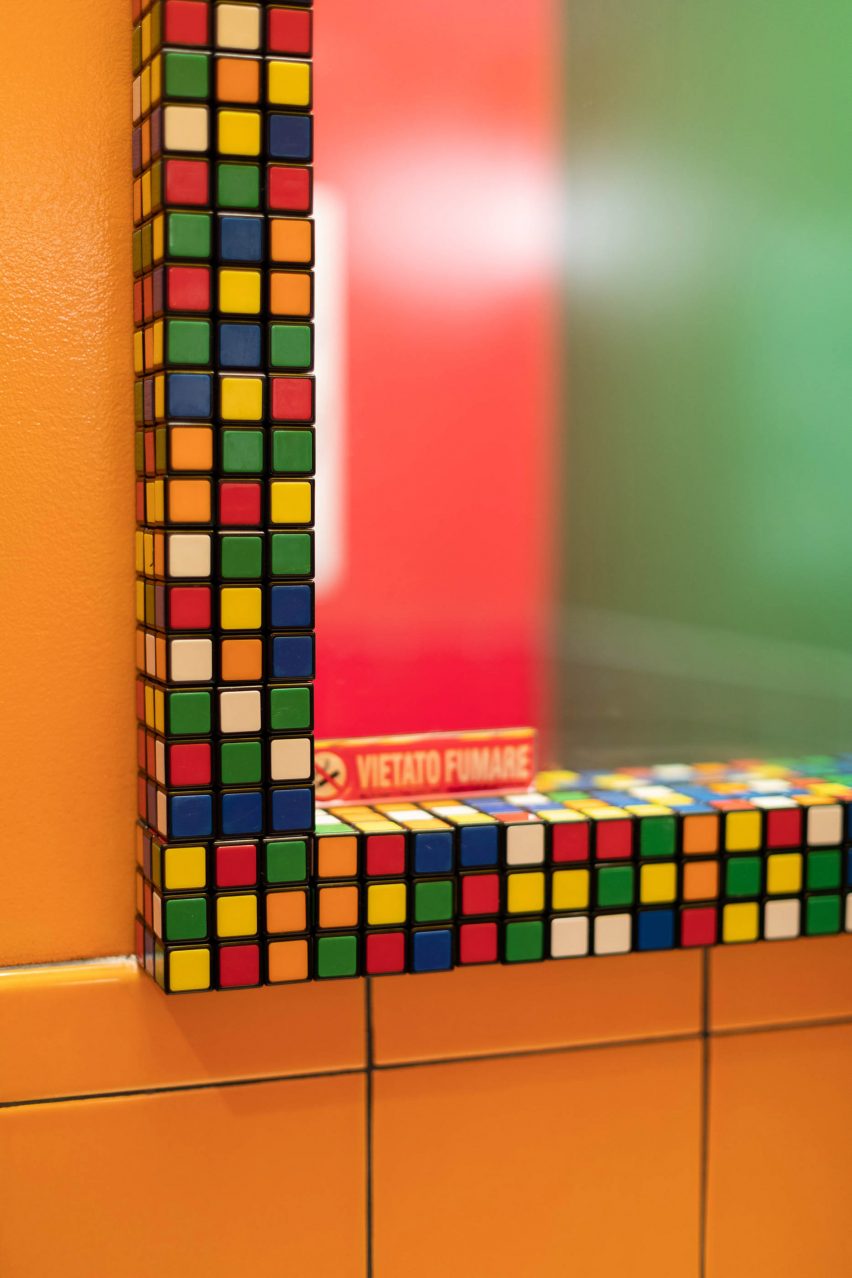
Circular tables boast a variation of five coloured laminates in graphic shapes and framed photographs of iconic fashion models from the decade embellish the walls.
Tables sit alongside two comfortable tan leather banquettes that face the main bar, making use of the small but open space to create a sociable atmosphere.

All of Caffettiera Caffé Bar’s available space offers a chance for customer interaction. The banquettes intersect at a self-service station, behind which a backlit planter is enhanced by the mirrors’ reflection.
“The long shared banquettes provide the option of sticking the round tables together, and since it’s linear people are actually all seated together”, explained Dworkind.
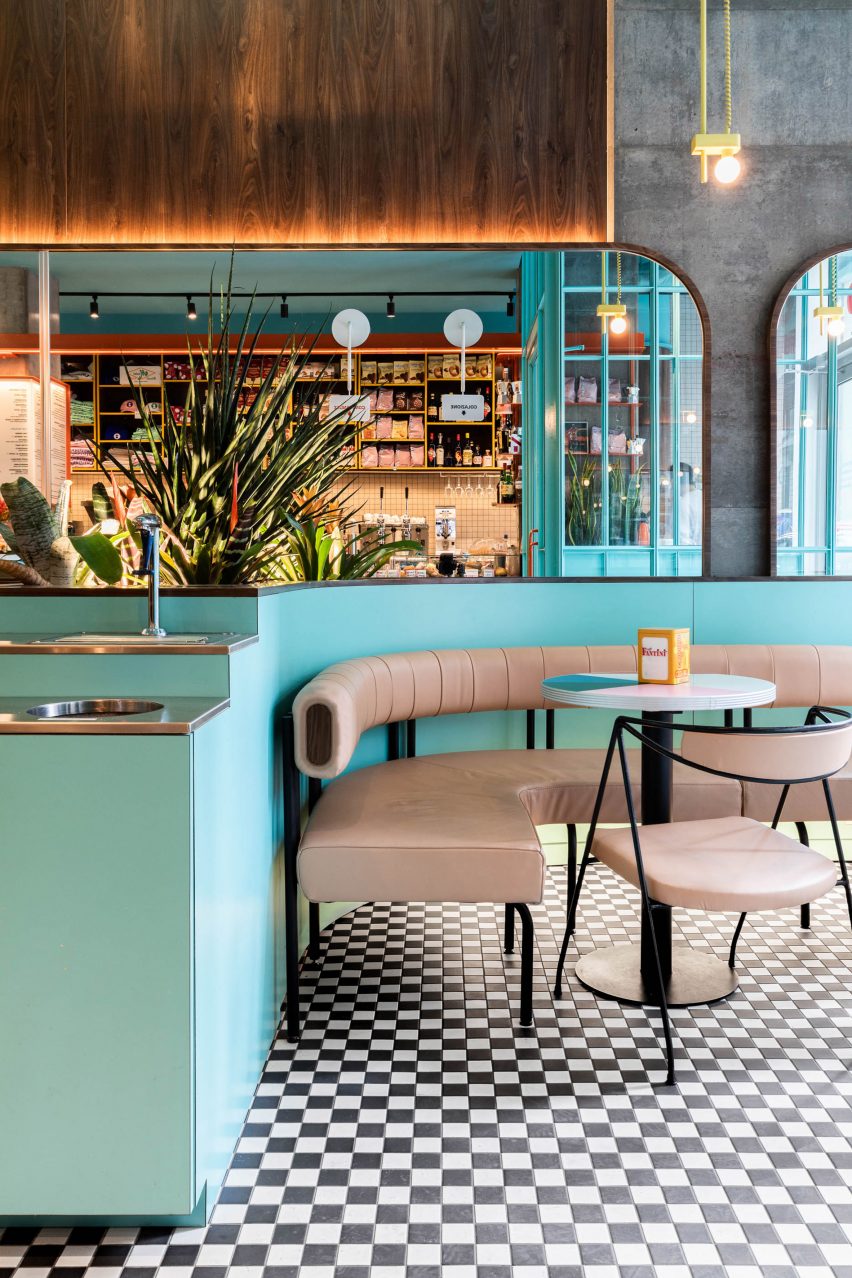
Curving furniture echoes the shape of the mirrors. Rounded vintage chairs sourced from classified ads have been reupholstered in the same tan leather as the banquettes.
Continuing the cafe’s curving lines, the ceiling’s exaggerated cornicing is another retro visual element. As with the main bar and the checkerboard floor, the cornicing seamlessly blends the walls and the ceiling together.
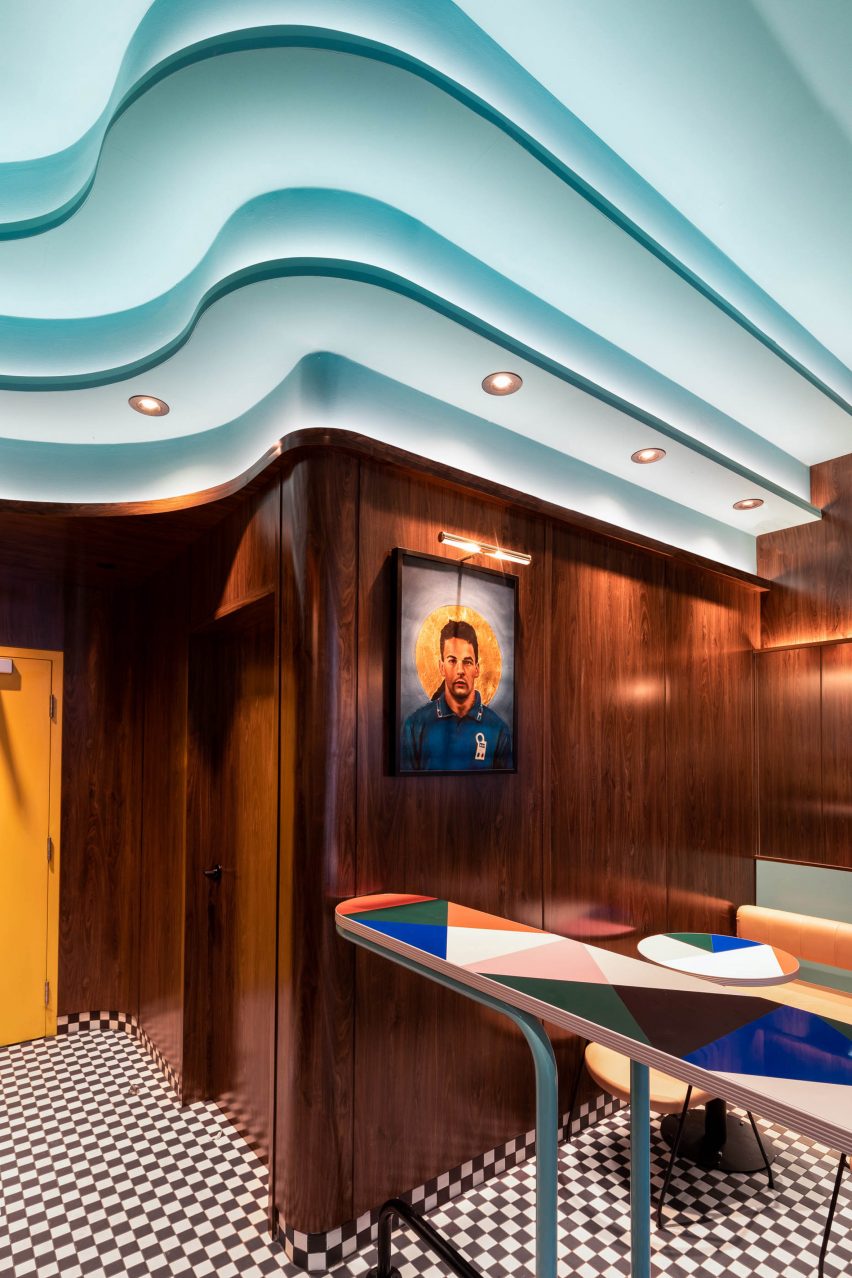
Lambert & Fils pendant lights are suspended from yellow telephone wire above the seating area, bathing the tables in a warm glow.
Traditional Italian food products are displayed on a long shelf behind the main bar, where a selection of sandwiches and pastries are served. Cafe merchandise is also for sale.

Italian signs illustrating where to pay and order slide along an orange painted steel beam above the bar. Their locations can be rearranged by staff depending on each day’s flow of customers.
Various 90s books, toys and stickers feature in Caffettiera Caffé Bar’s windows, and around the space, making it a wholly nostalgic experience.
A similarly retro feel can be found at Baseball, a food court in Hong Kong designed by studio Linehouse, influenced by 70s films.
Co-founded by Ménard and Dworkind in 2017, previous projects from the Montreal-based studio include a kitsch Chinatown-themed pan-Asian restaurant and a recreation of a 1970s New York pizza parlour.



